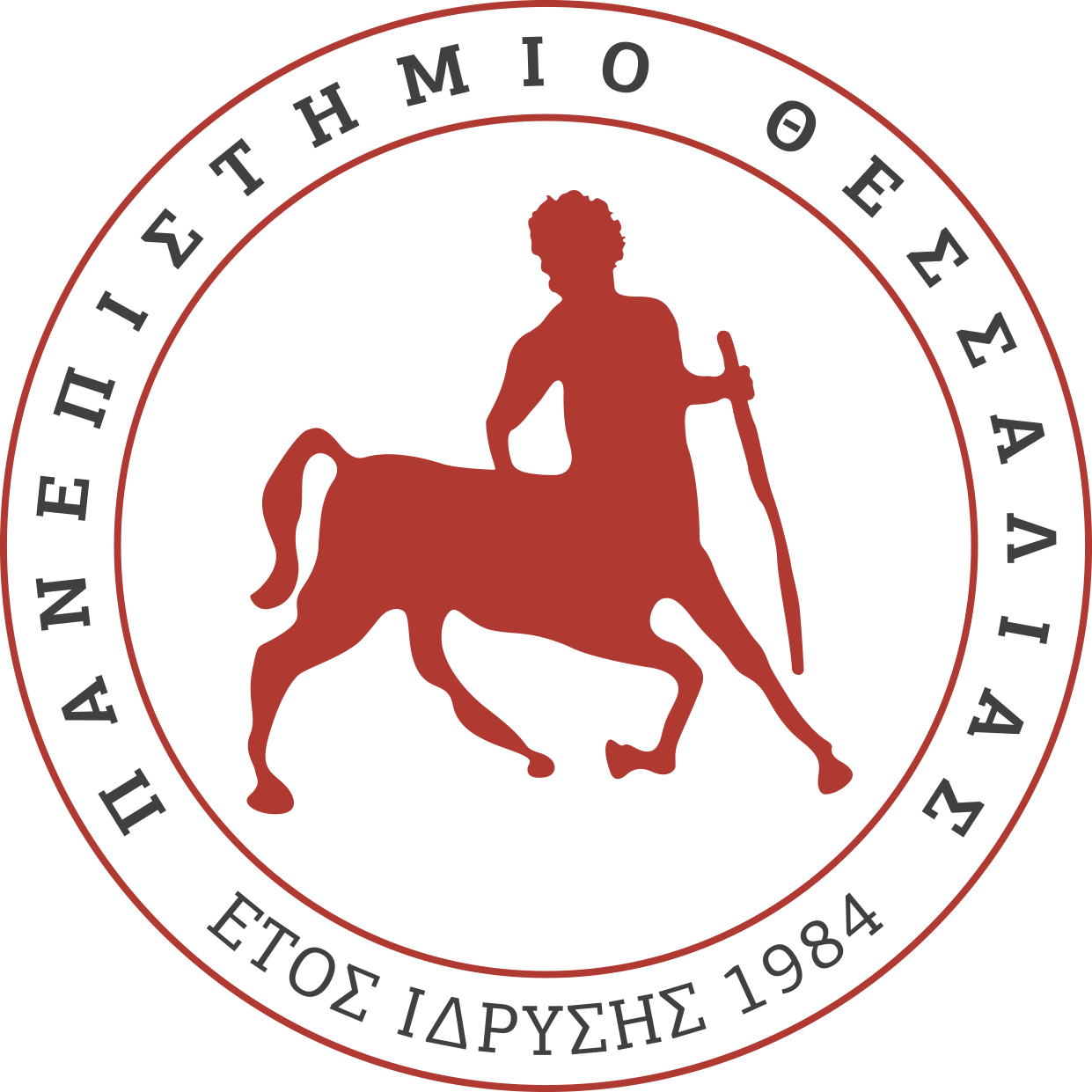πολιτικη αριθμητικη
σύμπαν μαθηματικοποιημένο
Ένα σύμπαν μαθηματικοποιημένο με τον τρόπο αυτό επιτρέπει στρατηγικές παγκόσμιας κυριαρχίας, βασισμένης σε μια παγκοσμιοποιημένη ροή πληροφοριών. Αν και αυτό ακριβώς το σύστημα είναι ένας περίτεχνος μύθος που λειτουργεί στην πράξη, έχει πραγματικές και καταπιεστικές συνέπειες ακριβώς επειδή αποκρύπτει, αποσιωπά και αποκλείει τις σχέσεις και τις πηγές σημασιοδότησης, οι οποίες στη συνέχεια αναδιατάσσονται ώστε να παράγουν νέες, φυσικοποιημένες και κανονιστικές πρακτικές. Οι μαθηματικές αλήθειες αυτού του είδους λένε τελεσίδικες ιστορίες οι οποίες αποκλείουν άλλες αλήθειες. Για τον λόγο αυτό υποστηρίξαμε ότι το ζήτημα δεν είναι απλώς ότι τα μαθηματικά βιβλία δίνουν παραδείγματα για δραστηριότητες όπως το κέντημα, αλλά η εξέταση των πανίσχυρων επιπτώσεων του ορθολογικού ονείρου που μετρά το σύμπαν. Για να το ανατρέψουμε πρέπει να αφηγηθούμε ξανά αποσιωπημένες ιστορίες καταπίεσης των γυναικών, να αποδείξουμε πώς έχουμε γίνει το αντικείμενο υπολογισμών και ταυτόχρονα πώς έχουμε αναγκαστεί να κάνουμε υπολογισμούς. Μιλούμε,τελικά, για τον μετασχηματισμό των ίδιων των Μαθηματικών, ώστε να δημιουργούν πρακτικές λόγου που δεν θα διαχωρίζουν την εκλογίκευση από το συναίσθημα και από το κοινωνικό. Αυτά τα μαθηματικά δεν θα είναι εξ'ανάγκης φεμινιστικά ή θηλυκά, ακριβώς γιατί δεν θα είναι τα αποστειρωμένα μαθηματικά όπως τα αντιλαμβανόμαστε σήμερα. Οι ορίζουσες και οι βάσεις τους θα έχουν χαραχθεί διαφορετικά. Walkerdine, V.
Αποκλείοντας τα κορίτσια (2013). Επιμέλεια Μτφ Χρονάκη Άννα. Gutenberg.
ορθολογικός πολίτης
Έχουμε υποστηρίξει ότι η σύγχρονη διακυβέρνηση λειτουργεί μέσα από μηχανισμούς όπως τα σχολεία, τα νοσοκομεία, τα δικαστήρια, οι κοινωνικές υπηρεσίες, οι οποίοι βασίζονται σε αυτό που ο Foucault έχει περιγράψει ως τεχνολογίες του κοινωνικού: επιστημονικές γνώσεις μεταφρασμένες σε πρακτικές οι οποίες οριοθετούν τις ιδιότητες του προς διοίκηση πληθυσμού - όχι μέσω ενός απλού και απροκάλυπτου εξαναγκασμού, αλλά μέσω τεχνικών οι οποίες φυσικοποιούν την επιθυμητή κατάσταση μέσα στην αστική τάξη πραγμάτων: έναν ορθολογικό πολίτη ο οποίος, λογικά και ελεύθερα, αποδέχεται αυτή την τάξη πραγμάτων και υπακούει με 'τη δική του ελεύθερη βούληση'. Αυτές οι γνώσεις, οι μηχανισμοί, οι πρακτικές επιδιώκουν συνεχώς να οριοθετήσουν και να προδιαγράψουν τις διαδικασίες που θα κατασκευάσουν με φυσικό τρόπο αυτό το υποκείμενο. Ορίζουν σταθερά τα κορίτσια και τις γυναίκες ως παθολογικά όντα, που αποκλίνουν από τον κανόνα και υστερούν, αλλά τις ορίζουν επίσης και ως αναγκαίες για τη δημιουργία και την ανατροφή δημοκρατικών πολιτών.
Walkerdine, V. Αποκλείοντας τα κορίτσια (2013). Επιμέλεια Μτφ Χρονάκη Άννα. Gutenberg.
ταξινομούν τα παιδιά
Στην ηλικία των 10 ετών οι εκπαιδευτικοί ταξινομούν τα παιδιά σύμφωνα με τις τοποθετήσεις που παρουσίαζαν στην ηλικία των 6 ετών. Τα αγόρια κατέχουν κάποιες πραγματικές, αλλά αόρατες δυνατότητες. Η κακή τους επίδοση αφενός δικαιολογείται και αφετέρου μετατρέπεται σε καλή ιδιότητα, ενώ ανυπακοή και βιαιότητα είναι αδιαχώριστο στοιχείο του ενεργητικού παιδιού. Οι τοποθετήσεις σε λόγους που δίνονται σε αγόρια και κορίτσια έχουν παγιωθεί. Τα κορίτσια θεωρούνται ότι είναι πολύ εργατικά, χαρακτηρισμός που ωστόσο είναι μάλλον θετικός στα σχολεία της εργατικής τάξης όπου υπάρχουν περισσότερες βοηθοί δασκάλας. Στα σχολεία της μεσαίας τάξης τα κορίτσια συνήθως έχουν καλή επίδοση, αλλά σταθερά τους λένε, και αισθάνονται και τα ίδια, ότι δεν είναι αρκετά καλά. Το άγχος τους είναι έντονο, αλλά υποτιμάται. Στα μεσοαστικά σχολεία, και ιδίως σε όσα καταβάλλονται δίδακτρα, οι επιδόσεις στα τεστ είναι τόσο πολύ καλύτερες από τα σχολεία της εργατικής τάξης, ώστε να καθιστούν τις ίσες ευκαιρίες σκέτη κοροϊδία. Στο πλαίσιο αυτό οι έμφυλες και ταξικές διαφορές έχουν απλά φυσικοποιηθεί.
Walkerdine, V. Αποκλείοντας τα κορίτσια (2013). Επιμέλεια Μτφ Χρονάκη Άννα. Gutenberg.
ανθρώπινη μιζέρια!
Οποιαδήποτε συμπεριφορά στο πεδίο των σεξουαλικών σχέσεων και της εγκληματικότητας παρέκλινε από τον μέσο όρο αφενός ήταν καταδικαστέα και αφετέρου μπορούσε να προβλεφθεί με την ακρίβεια πρόβλεψης των πλανητικών κινήσεων. Το γεγονός ότι ο αριθμός των αυτοκτονιών παρουσίαζε κάθε χρόνο από το 1826 έως το 1831 ελάχιστο 1.542 και μέγιστο 2.048, των δολοφονιών 205 και 266 αντίστοιχα και των εγκλημάτων σε βάρος ιδιωτών κυμαινόταν από 1.666 έως 2046, επέτρεπε στον Quetelet να ισχυριστεί: «Ανθρώπινη μιζέρια! Μπορούμε ακόμα και να προβλέψουμε ετήσια πόσοι άνθρωποι θα λεκιάσουν τα χέρια τους με το αίμα των συνανθρώπων τους, πόσοι θα πλαστογραφήσουν, πόσοι θα δηλητηριάσουν, όπως σχεδόν προβλέπουμε τις ετήσιες γεννήσεις και τους θανάτους».
Θανάσης Λάγιος. Νόμος και Κανόνας: Επιστήμη και Βιοπολιτική. Από Κριτική στην Επιστήμη.
mathemacy
Mathemacy as a radical construct, has to be rooted in the spirit of critique and the project of possibility that enables people to participate in the understanding and transformation of their society and, therefore, mathemacy becomes a preconception for social and cultural emancipation,
Skovsmose, O. (1994). Towards a Philosophy of Critical Mathematics Education. Dordrecht: Kluwer Publishers. pp 26.
maths for all
Contemporary educational policy calls to ‘maths for all’ are interwoven with a complex net of discourses for the mastery of mathematics. Mathematical reason is taken as the ultimate objective, certain, neutral and transparent process in making meaning and producing ‘true’ or ‘real’ knowledge in an earth and society under decay. The universality of this discourse reads as if mathematics itself can be constituted responsible for the re/construction of a sustainable and democratic citizenship.4 In turn, this discourse has been utilised as a disciplinary apparatus for governing not only the modern or neoliberal citizen, but also the indigenous or first nation colonised bodies and fe/male or dis/abled bodies (see Chronaki 2009 discussing feminist postcolonial critiques in school technoscience based on Spivak 1999, Harding 1998, Haraway 1997). Nowadays, most children and adults, if asked, would probably condemn compulsory math as it occurs in enclosures of learning or administration. Many studies report symptoms of children’s repeated failures in school mathematics and lack of motivation to engage with decontextualized tasks or ‘pseudo’ models of a complex reality. Furthermore, research continuously uncovers class stratifications and racialization of mathematical and unbridgeable gaps related to children’s backgrounds cultures, languages, genders, epistemologies and ontologies (Walkerdine 1998, Popkewitz 2004, Walshaw & Brown, 2012). Despite continuous research attempts towards addressing the above through innovative didactic, pedagogic or curricular interventions and theorizing the persistence of affect such as fear, anger, frustration, boredom or indifference we, today, continue to confront school mathematics as ‘dead’ (Fasheh 1997) and mathematics education at a continuous state of ‘disorder’ (Straehler-Pohl, Pais & Bohlmann, 2017).
Chronaki, Anna (2018) "The Unbearable Lightness of Dis|appearing Mathematics: Or, life and reason for the citizen at times of crisis," The Mathematics Enthusiast: Vol. 15 : No. 1 , Article 3.
science of reason
In his manuscript ‘One Dimensional Man’, Marcuse (1964) explained how the coupling of reason and freedom has declined in the late industrial epoch where the citizen as labourer and worker cannot even oppose the hegemonic domination imposed via techniques of ‘reason’ in the context of work as an increased economic, political and cultural concentration. In addition, ‘new left’ scholarship in the course of post-Marxist, post-structuralist or post-colonialist approaches have interrogated the discursive construction of certain ‘regimes of truth’ or ‘universals’ by means of pure reasoning. The perils of ‘reason’ in society have been explored by Foucauldian genealogies, but also by certain post/colonial or de/colonial critiques on how Eurocentric visions of ‘reason’ have been imposed onto the active, yet, for some, the ’wild’ life of indigenous or first citizens which are still rendered in tacit linguistic genres as under/developed, un/cultured or un/civilized (Spivak 1999). Walkerdine (1998) observes how the image of mathematics in society and schooling moved from a science of numerical calculation to a science of reason and reasoning that has influenced the formation of progressivism in mathematics education curricula and explains: “The powers of the mind were to be marshalled in order to govern a population through reason and the population would itself be developed enough to reason” (p. 30).
Chronaki, Anna (2018) "The Unbearable Lightness of Dis|appearing Mathematics: Or, life and reason for the citizen at times of crisis," The Mathematics Enthusiast: Vol. 15 : No. 1 , Article 3.
ιστορία του αριθμητισμού
Η ιστορία του αριθμητισμού στις αρχες του 19ου αιώνα διαφωτίζει τον νέο αμερικανικό έμφυλο διαχωρισμό: όχι μόνο στάλθηκαν οι άντρες παντού στην αγορά, ενώ οι γυναίκες απομονώθηκαν μέσα σε ένα συναισθηματοποιημένο σπιτικό, αλλά η ποσοτικοποίηση απέκτησε αρσενικό χαρακτήρα, ενώ το υποτιθέμενο αντίθετό της, η ακαθόριστη διαίσθηση, η οποία αντιστέκεται στον συγκεκριμένο καθορισμό των πραγμάτων, κατέληξε να γίνεται αντιληπτή ως επιθυμητό, φυσικό και αποκλειστικό γνώρισμα των γυναικών.
Cline Cohen, P. (1982). A calculating people: The spread of numeracy in early America. Chicago: University of Chicago Pres5. pp 149.
εκείνων που αντιμετωπίζονται ως αριθμοί
Μακρυνιώτη, Δ. (2004) (επιμ.-εισαγ.). Τα Όρια του Σώματος. Διεπιστημονικές Προσεγγίσεις , Αθήνα: Νήσος, pp 215.
a systematic mathematization of her body
At the same time, the practice of a systematic mathematization of her body concentrates the anxieties of the period to understand the evolution of humanity, to depict it in scientific terms and to produce narratives of what is known as ‘scientific analogy’ and ‘scientific orientalism’. Africans were historically placed next to primates in the great chain of being. Race and gender are also depicted by Nancy Leys Stepan (2000) as a powerful ‘scientific analogy’ that occupied a strategic place in scientific theorizing about human variation in the nineteenth and twentieth centuries. Remnants of this argument are found in examples from anthropometric, medical and embryological studies focused on measuring human and animal skeletons (see Gould, 1981). Such studies have provided evidence of women’s low brain weights and deficient brain structures as compared to men from varied cultures o[4] r even to animals. Thus, it was observed that Woman shared with Negroes the primitive traits of a narrow, childlike, and delicate skull found in lower castes, so different from the more robust and rounded heads characteristic of the males of superior races. Evolutionary biology, making use of such evidence, provided the analogy of woman as the ‘conservative’ element to the man’s ‘progressive’ nature (Ellis, 1926). Londa Schiebinger (2000) discusses the shameful case of ‘Hottentot Venus’ as an object of scientific inquiry in modern biology via a systematic mathematisation of her body.
Chronaki, A., (2015). Mathematics with/in museums. Museumedu, 1, pp. 89-113.mathematics is framed as masculine
Mathematical ability and participation in mathematics are associated, both historically and statistically, with masculinity (Damarin and Erchick 2010; Mendick 2006). At the risk of being overly simplistic, if mathematics is framed as masculine, then from a worldview that has a binary perspective on gender, mathematics, by default, is then not feminine. In other words, girls might feel that they have to choose between being gender-normative as girls and doing mathematics (see Nosek, Banaji, and Greenwald [2002] as an example of psychological research on this idea). One response to this construed mismatch between mathematics and girls is to try to change girls to make them fit better with mathematics. Efforts such as encouraging girls to be more persistent, more vocal, or more confident are aimed at changing girls to be more successful in mathematics but to do so by being more like boys.
Rubel, L. H. (2016). Speaking up and speaking out about gender in mathematics. The mathematics teacher, 109(6), 434-439.
gender-complex education
As described by Rands (2013), gender-complex education means directly acknowledging gender diversity by making our curriculum and pedagogy reflect the existence of transgender and gender nonconforming people. Mathematics can be used to analyze gender privilege and oppression, such as analyzing gender salary gaps, rates of harassment and violence targeting transgender people, or other injustices that occur with respect to gender identity or sexual orientation. In addition, gender-complex mathematics education includes examining the ways that mathematics tasks present gender and rewriting story problems to better reflect gender diversity.
Rubel, L. H. (2016). Speaking up and speaking out about gender in mathematics. The mathematics teacher, 109(6), 434-439.








